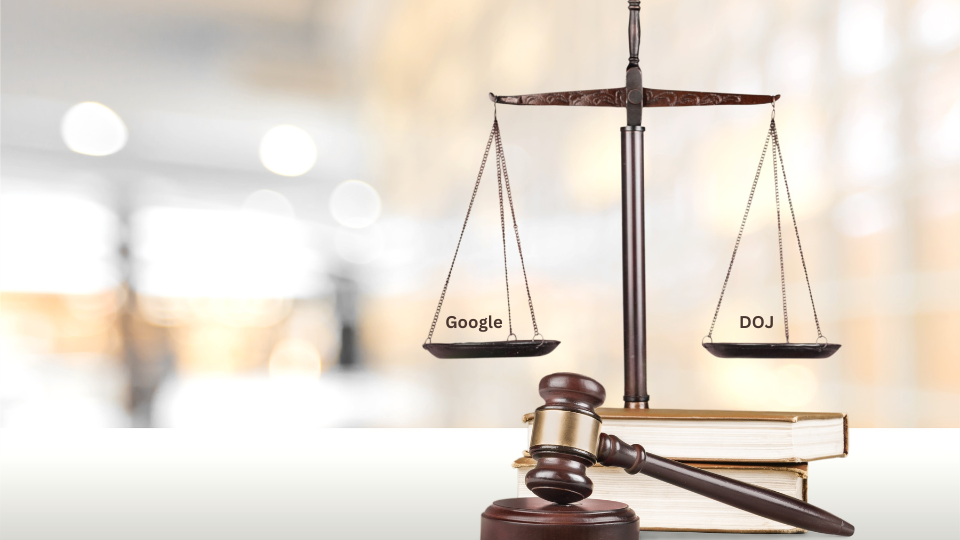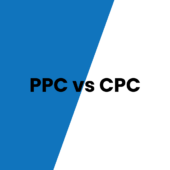The legal battle between the U.S. Department of Justice (DOJ) and Google has intensely scrutinized the digital advertising industry. This antitrust case could redefine the structure and fairness of digital advertising markets, potentially reshaping how publishers, advertisers, and tech giants interact.
The Core of the DOJ’s Case

Allegations of Monopoly
The DOJ alleges that Google has monopolized the open-web display advertising market through strategic acquisitions and proprietary technologies like DoubleClick, Google Ads, and AdExchange. According to DOJ claims, Google controls:
- 91% of the publisher ad server market.
- 87% of the advertiser ad network market.
These figures suggest a near-total dominance in crucial areas of the digital advertising ecosystem. Prosecutors have highlighted internal emails, including a 2009 statement by former Google executive David Rosenblatt, who reportedly envisioned Google replicating its search monopoly in the display advertising sector.
Destruction of Evidence
A contentious point in the trial involves Google deleting internal chat messages. While Google contends these were casual conversations, the DOJ argues that some deletions involved critical business discussions, potentially undermining transparency.
Market Definition Debate
The DOJ has categorized digital advertising into three distinct markets:
- Ad Servers: Tools that manage ad placements for publishers.
- Ad Exchanges: Platforms facilitating auctions between buyers and sellers of ads.
- Advertiser Ad Networks: Systems connecting advertisers with publishers.
Google’s overwhelming control across these markets is at the heart of the DOJ’s argument.
Google’s Defense
Broader Market Context
Google contests the DOJ’s narrow market definitions, asserting that digital advertising operates in a two-sided market consisting of:
- Ad Buyers: Companies purchasing ad space.
- Ad Sellers: Platforms offering ad inventory.
By this broader definition, Google argues it competes with social media platforms (e.g., Meta, TikTok) and streaming services, resulting in a significantly lower market share—approximately 10%, according to Google’s calculations.
Innovation and Investment
Google highlights its substantial investments in ad-matching technology, asserting that these innovations are proprietary advantages achieved through billions of dollars in development. The company contends it should not be penalized for its competitive edge or compelled to share it with rivals.
Potential Consequences of the Ruling
Divestitures and Market Restructuring
If Judge Brinkema rules against Google, the DOJ may seek remedies that include:
- Forcing Google to divest key components of its advertising business.
- Limiting Google’s ability to integrate services across its ad stack.
These measures could result in billions of dollars in lost revenue for Google while introducing significant competition into the market.
Broader Implications for Big Tech
This case parallels another antitrust lawsuit targeting Google’s search business, which could lead to the divestiture of its Chrome browser and other critical assets. Together, these cases could establish landmark precedents for regulating digital monopolies.
Impacts on Publishers and Advertisers
Publisher Concerns
Publishers argue that Google’s dominance compels them to use its entire ad stack to maximize revenue, reducing their ability to negotiate fair terms. The DOJ claims that Google’s practices prevent publishers from earning a just share of ad revenue, citing a commission rate as high as 36%.
Advertiser Frustrations
Advertisers express concerns over limited options to reach large audiences, often forced into Google’s ecosystem despite rising costs. Small businesses, in particular, feel the pinch, as higher ad expenses can erode already slim margins.
Google’s Take Rate
In response, Google counters that its “take rate” has dropped to 31%, lower than many competitors, and argues that its platform delivers superior value.
Antitrust Precedents in the Digital Age
Legal and Economic Implications
The DOJ’s lawsuit is part of a broader movement to address monopolistic practices in the tech industry. A ruling in favor of the DOJ could lead to stricter regulations, influencing not only Google but also other dominant players like Meta and Amazon. This case could redefine how antitrust laws apply to digital markets, ensuring a more level playing field.
Industry Adaptation
If the court mandates significant structural changes, the digital advertising landscape could become more fragmented, fostering competition and innovation. However, smaller advertisers and publishers may face short-term disruptions as they adapt to new systems.
Conclusion
The DOJ’s case against Google is more than a legal battle; it represents a pivotal moment in the evolution of digital advertising. The outcome will determine whether tech giants can maintain their dominance or if regulatory intervention will pave the way for a more equitable digital marketplace. Judge Brinkema’s decision, expected by the end of the year, can reshape the future of online advertising and establish critical precedents for antitrust enforcement in the tech sector.






